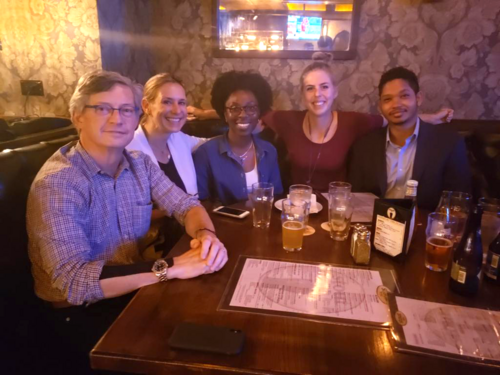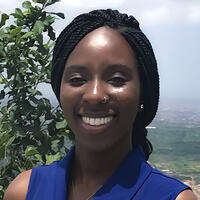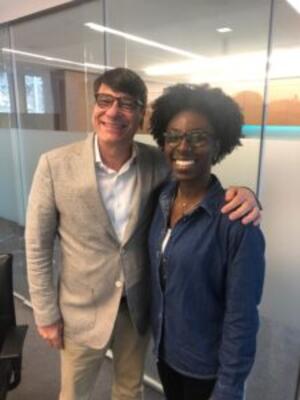On the Road to Movement Building: Assessing the Intersections of Environmental Justice
November 1, 2019
My fellowship experience in New York City pushed me as a leader and challenged my understanding of what it means to fight for environmental justice. New York City is a bustling metropolis that houses brilliant activists in the environmental justice movement. I was ecstatic to have the opportunity to network with some of these activists and contribute to the movement with my own experience.
While working with NorthLight Foundation, I conducted collaborative research with the New School to help inform the advisory group and Foundation’s consideration for a new potential area of support at the intersection of Birth Justice and environmental justice. Embarking on this responsibility was not easy. I was in charge of leading the direction of the research for a relatively new foundation. Receiving this level of responsibility was important to me because it underscored the Foundation’s capacity to trust people of color (POC) to do great work, which is an integral part of their values.
My research revealed that susceptibility to poor birthing outcomes is exacerbated by exposure to toxic chemicals. Compared to other women of color and white (non-Latinx) women, Black women have higher levels of endocrine-disrupting chemicals in their bodies. Endocrine-disrupting chemicals are found in products intentionally marketed to Black women. Therefore, the upstream and trauma-informed framework of Birth Justice provides an opportunity to build intersectional macro-level solutions that current policy does not.
Thanks to the generous request from The Overbrook Foundation, I also worked with the New School to lend my talents for a project known as the Building Equity and Alignment for Impact (BEA-I). The BEA-I project is a landscape assessment highlighting whether National, Midwest and Gulf South funders are doing environmental justice work, how they define it, whether they are BEA-I partners and how much funding was allocated to environmental justice initiatives with grantee partners in 2016 and 2017. The goal was to determine how well foundation funding assists with environmental justice movement building.

After hours gathering with Daniel Katz of The Overbrook Foundation and NorthtLight Foundation team. (From left to right: Daniel Katz, Executive Director; Kate Sinding Daly, NorthLight Foundation Executive Director; Cassandra Osei, 2019 EGA Fellow; Nicole Follmann, NorthLight Foundation Program Assistant and Grants Manager; and Trevor Thompson, NorthLight Foundation Program Associate.)
Both projects immersed me in the history and intersections of environmental justice. I developed an understanding of the gaps that persist in environmental justice work, and the importance of philanthropic funding for impact.
In my research with NorthLight Foundation, it was critical to advance a framework that centered marginalized groups and frontline communities. To ensure this was successful, I relied on input from potential grantee partners and colleagues who are knowledgeable about maternal health and understand the impact of Birth Justice, an understudied component of reproductive justice that centers the experiences and narratives of Black women.
As the interest in environmental philanthropy grows, funders must have a deep understanding of the history of environmental justice, its intersections, and who is represented and tasked with the work of movement building. The path towards change can no longer be siloed. Environmental philanthropy would be remiss not to further explore how POC are impacted by environmental harms and how they can offer solutions to solve them.
About Cassandra Osei, MPH

